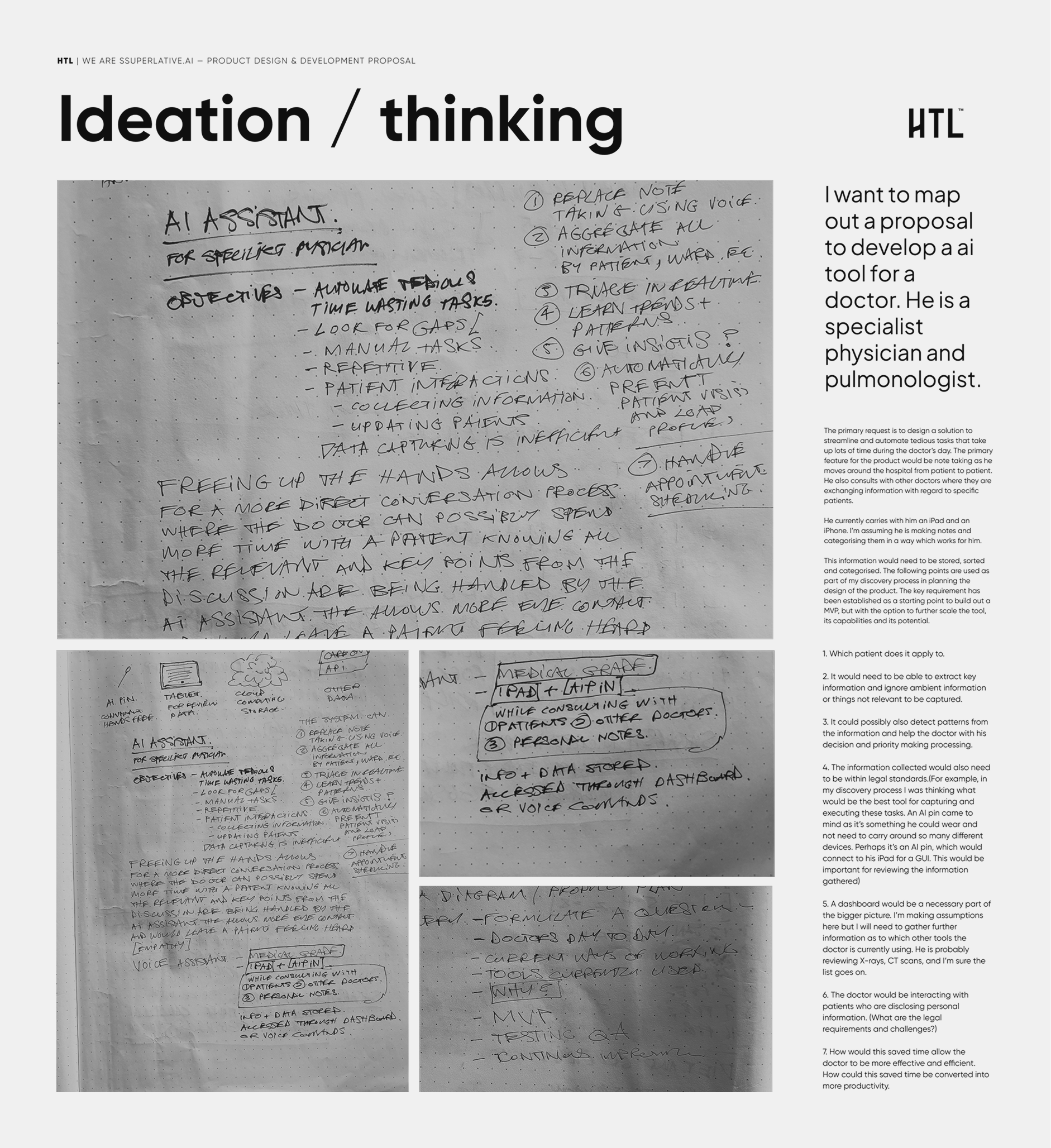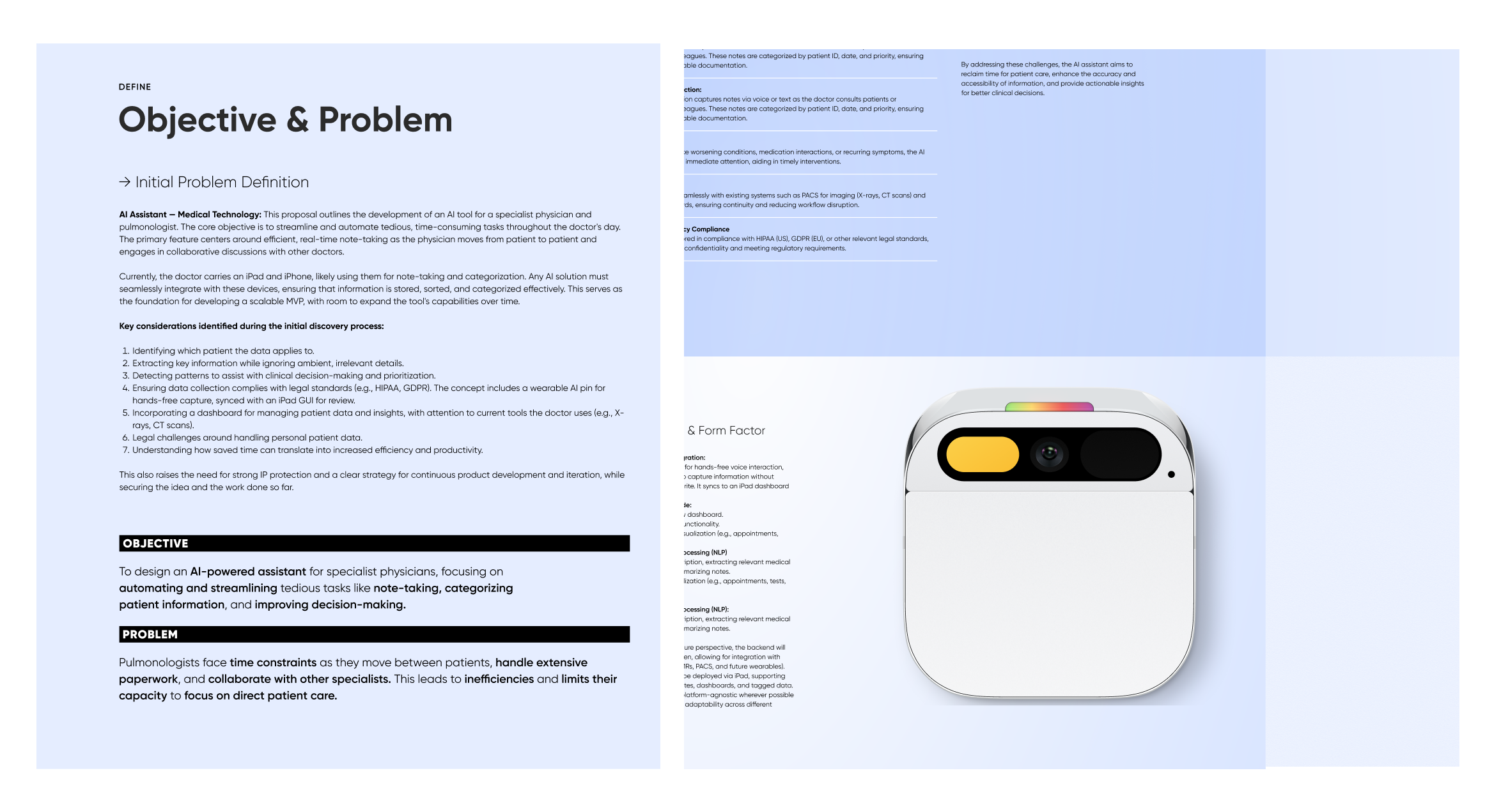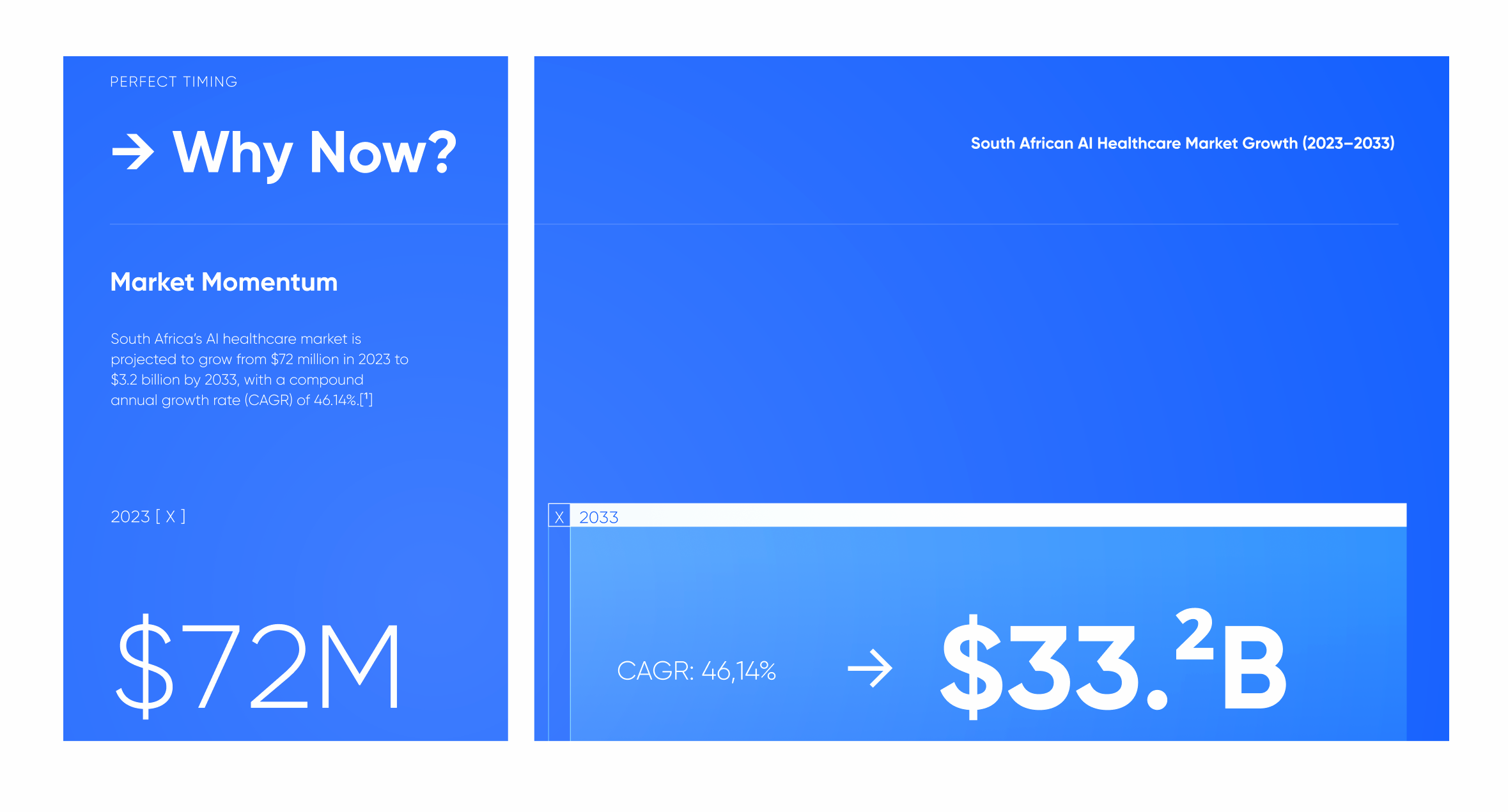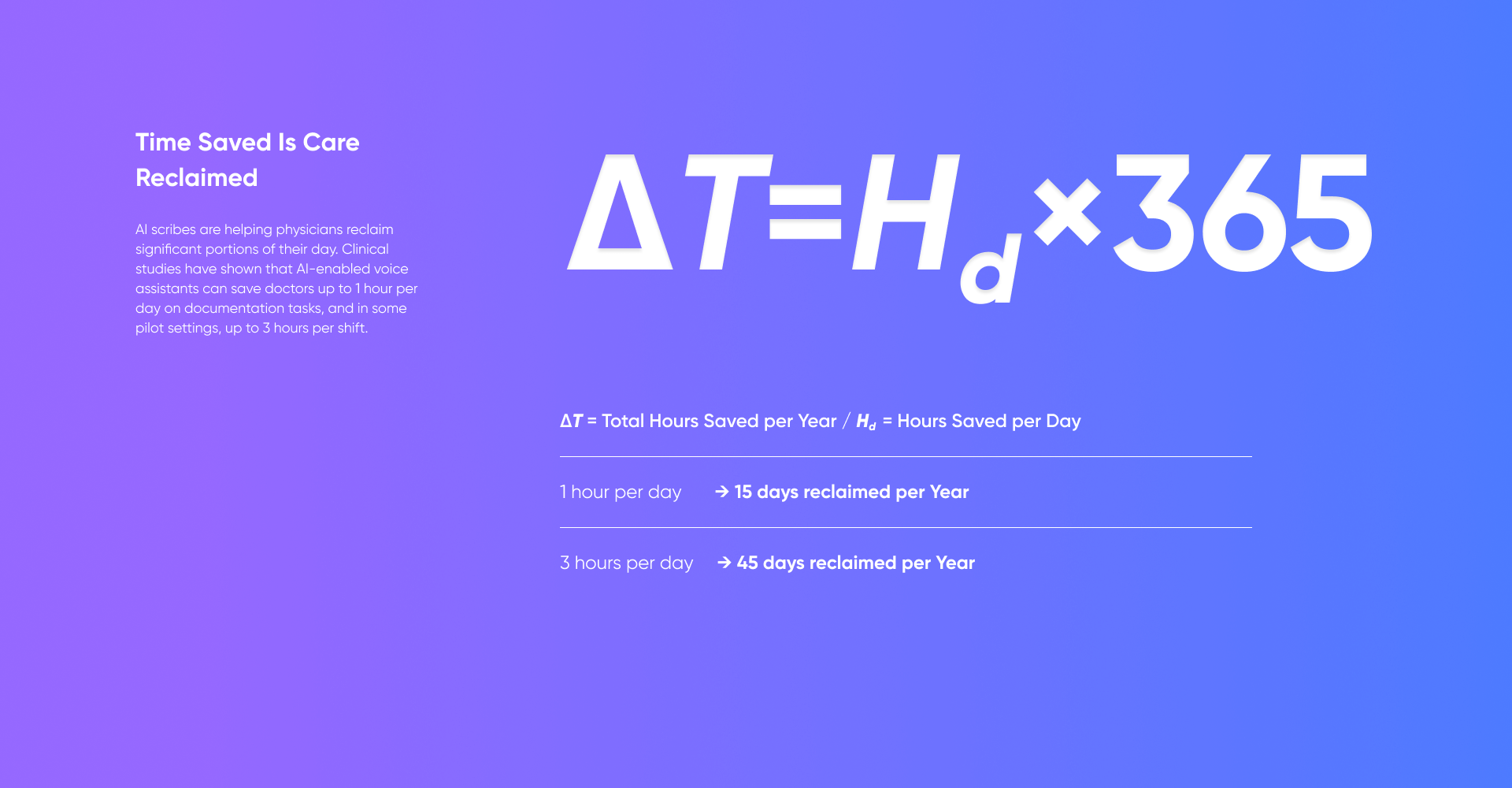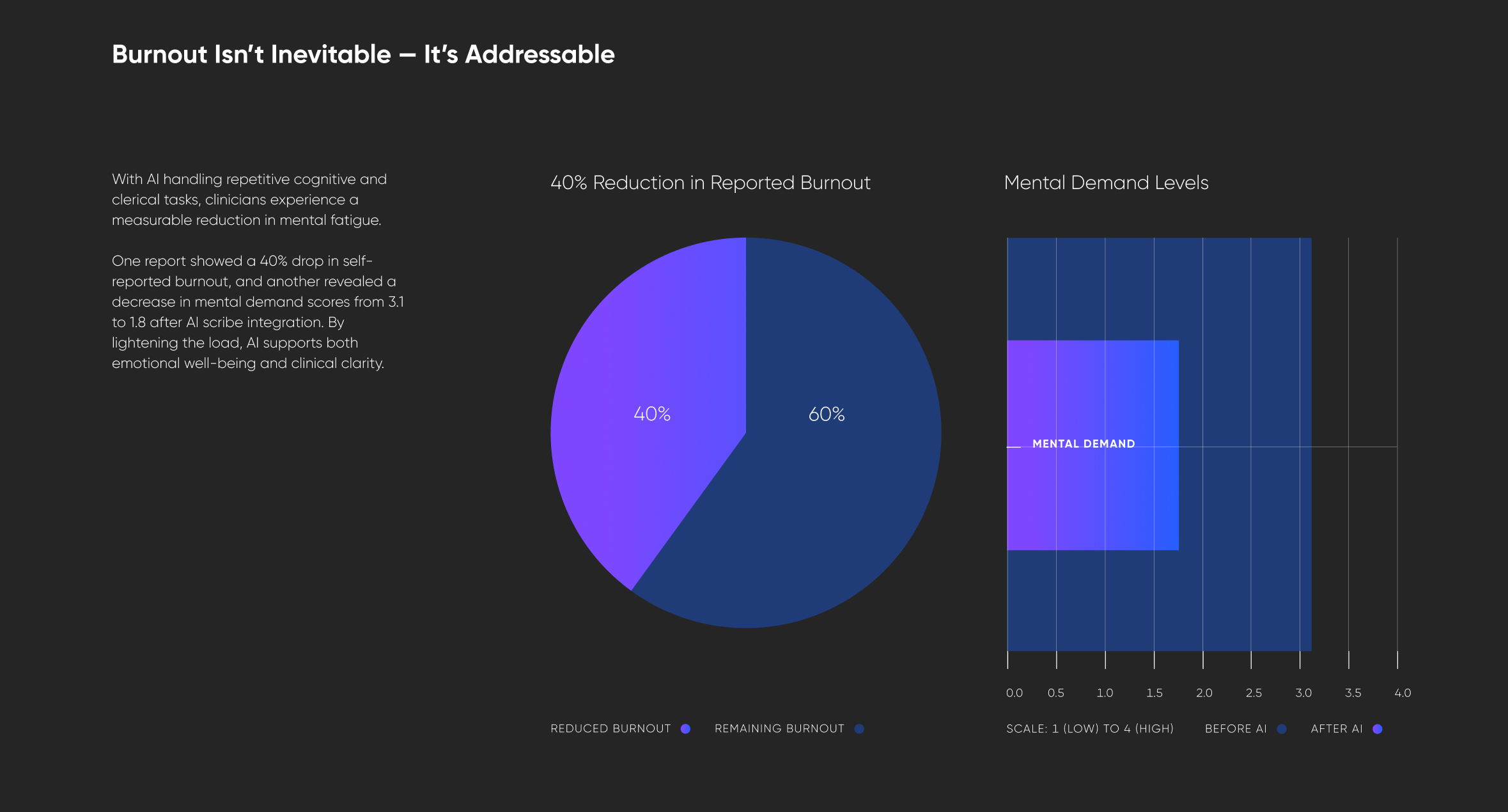Reclaim Time, Restore Focus — Redefine Care.
AI-enabled voice assistants are helping physicians worldwide reclaim hours lost to documentation — freeing time for deeper patient care, critical thinking, and personal well-being. Now, you have the opportunity to lead this shift — starting with your practice.
AI MEDICAL ASSISANT RECLAIMING TIME REDEFINING CARE
Medicine runs on precision but often at the cost of presence.
Between rounds, reporting, and constant documentation, physicians spend more time typing than listening. The AI Medical Assistant was born from this gap — designed to return focus to what matters most: care.
The project began with observation. I shadowed a pulmonologist moving between patients, iPad in hand, splitting attention between voice, notes, and thought. Every minute spent documenting was a minute taken from care. The challenge was clear: how do you automate the administrative without losing the human?
The concept evolved into an integrated, voice-enabled assistant built around the rhythms of clinical work. A lightweight AI “pin” captures speech hands-free, syncing to an iPad interface where structured notes, tagged by patient and priority, appear in real time. The system learns the doctor’s vocabulary, identifies clinical patterns, and filters out irrelevant noise.
The goal isn’t to replace doctors — it’s to restore their time. Early discovery revealed that AI note-taking could reclaim up to three hours a day, reduce mental load by 40%, and improve documentation accuracy by 50–70%. Each reclaimed hour becomes care returned: deeper patient conversations, sharper decisions, and more humane medicine.
Built with HIPAA and GDPR compliance at its core, the architecture balances intelligence with accountability. Real-time transcription runs through domain-tuned NLP models like BioBERT and ScispaCy, ensuring medical precision while maintaining privacy.
The design is modular — API-driven, scalable, and device-agnostic — ready to integrate with EMRs, imaging systems, and future wearables.
The discovery phase continues to focus on field validation: mapping workflows, refining the interface, and building a language model specific to pulmonology. Each iteration aims to make the assistant less visible but more capable — the quiet intelligence behind the conversation.
The AI Medical Assistant represents a shift from reactive care to anticipatory design. It’s not just a tool; it’s an infrastructure for attention — turning noise into insight, data into dialogue. At its heart lies a simple equation: time saved is care reclaimed.

![HOTELROMEO [2026 Ro Soft Merge]](http://images.squarespace-cdn.com/content/v1/68d154032c5eb30eb8b894e0/43696dc8-762b-4fb2-992b-341f083b14d8/HTL+%3A+RO+Merge.png?format=1500w)


